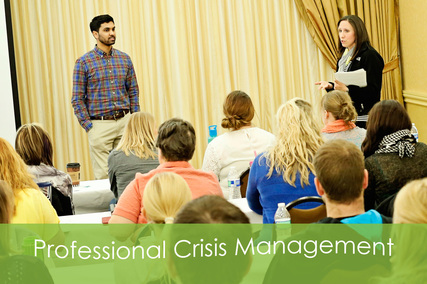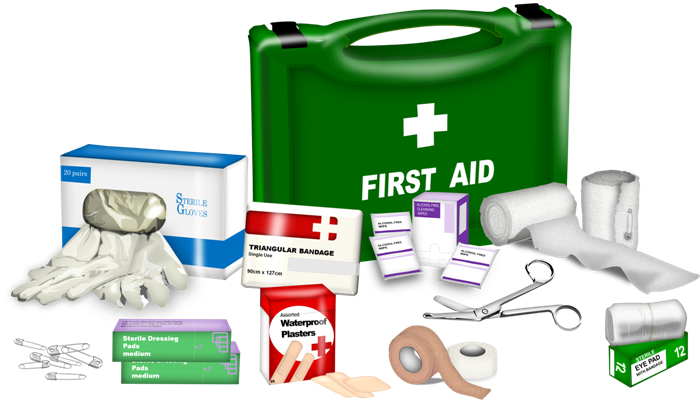
What is PCM?
What is Professional Crisis Management?
PCM is an advanced system of crisis management. Unlike other methods that teach intervention techniques only after individuals have become non-compliant, agitated or aggressive, PCM focuses primarily on prevention before a crisis occurs. PCM includes Crisis Prevention, Crisis De-escalation, Crisis Intervention, and Post-Crisis Intervention components. PCM utilizes "hands on" competency-based training and written tests to certify that individuals who receive instruction in PCM reach the highest level of skill acquisition. PCM is the only complete crisis management system available that can guarantee successful prevention and intervention with maximum safety, increased dignity and total effectiveness.
Crisis Prevention
The best way to handle a crisis situation is to prevent it before it happens!
The crisis prevention component of the PCM system teaches a wide range of nonphysical and verbal strategies for the prevention of crisis situations. Since PCM is based on a teaching and learning model, it integrates smoothly as well as complements and strengthens your existing teaching and treatment strategies. Furthermore, throughout the PCM course, an emphasis is placed on the importance of individual choice and basic human rights.
Crisis De-escalation
The PCM system is based on a cognitive-behavioral model of intervention that utilizes established research based techniques for verbally de-escalating disruptive and aggressive behaviors. The PCM de-escalation component benefits from the groundwork established during the prevention process. During the PCM training course, participants acquire skills that enable them to quickly and safely stabilize an escalating situation before it becomes necessary to physically intervene.
Crisis Intervention
PCM provides individuals with a continuum of painless physical procedures and techniques that can be utilized to intervene in a crisis situation. Specific procedures have been uniquely designed for children, adolescents, and adults. All of the procedures have been designed to maintain human dignity and to completely avoid awkward positioning and physical pain. The PCM training course teaches participants to respect the dignity and value of all human beings and to be sensitive to individual human rights and freedoms.
Post-Crisis Intervention
The PCM course teaches participants various methods of interacting (verbally) following the implementation of crisis intervention. Specific content for post-crisis intervention counseling is presented and practiced at all training courses. Participants gain skills that enable them to quickly reintegrate individuals back to their regular teaching or treatment activities. Participants obtain training in how to conduct post-crisis analysis which includes ways of improving future interactions in crisis situations.







3 Comments
emelina santiago
Tuesday 8th November 2016Thanks for posting this.. Thanks
Nova Scotia
Tuesday 8th November 2016LOOKS GOODS
Smith
Thursday 22nd December 2016Good